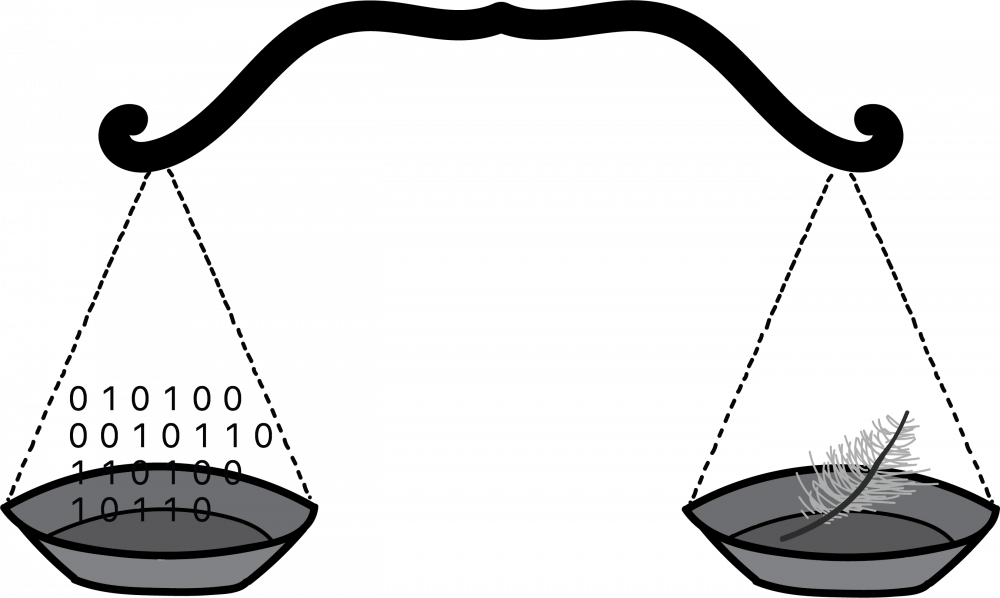The University's Data Science Institute recently incorporated the new Center for Data Ethics and Justice — founded by the University’s Bioethics Chair Jarrett Zigon — in an effort to ramp up its focus on ethics in analysis and interpretation of data. This partnership has created a new course for graduate data science students that specifically addresses ethical issues related to the handling of data and advancement in technology.
The DSI — located in Dell 1 and Dell 2 — is a research and academic institute that offers masters programs in data science as well as dual degrees in partnership with the Darden School of Business, the Medical School and the Nursing School.
Phillip Bourne — director of the DSI and professor of biomedical engineering — regards ethics as a pillar of their graduate program. He said few data scientists have formal training in ethics, and the partnership with the Center will equip students with the tools to make ethical decisions throughout their careers.
The Center brings a redefined course to the Master’s of Science in Data Science that is specifically designed for tackling ethical problems in the data science field. Students must complete a capstone research project by the end of the 11-month MSDS program, with an analysis of the ethical aspects of their capstone as their midterm. A combination of lecture and discussion, DS 6002 “Ethics of Big Data I,” encourages students to apply the fundamentals of ethics to practical situations that relate to data and technology.
According to Samuel Lengen, the instructor for the course and a research associate at the Center for Data Ethics and Justice, there are three main parts to the class — expanding questions relating to data ethics, discussing controversy and finding responses to ethical challenges. Recent headlines involving Facebook’s use of personal information is just one example of real-world situations that are analyzed through an ethical lens throughout the course.
In other cases, such as when tracking medical or financial information, data can be intricately and intimately connected to people’s lives both in extraction of data and its applications — and the Center wants to impart those considerations to the MSDS students.
“We're bringing a social science perspective, or more specifically an anthropological perspective, into this question of data ethics,” Lengen said.
One MSDS student, Lucas Beane, said this course was “eye-opening” for him. His capstone research is working with the Engineering School on Charlottesville’s Open Data Portal — an organization that provides access to data about Charlottesville. This organization seeks to make data accessible in order to promote problem-solving on various issues in the City, such as affordable housing.
Not only does the Center focus on education but it also focuses on research. The Center is interested in exploring ethical issues that surface in tandem with new technologies.
“Kind of what [the education and research] will be doing together is a real focus not just on the ‘rules’ and ‘guidelines’ notion of ethics, like how to be a good data scientist, follow the proper ethical rules,” Zigon said. “We want to do that, that's important, but also get students and data scientists to recognize that indeed ... the technologies they are involved in, and the work that they're doing, is very likely the future of technology in the world.”
In the month since the DSI and the Center began their partnership, they have faced challenges with getting the program fully underway and converging distinct viewpoints on what ethical interpretations of data truly means. Both Lengen and Zigon emphasized reframing data ethics as not only a set of guidelines for data scientists to follow while doing research but an exploration of how data development shifts human interaction.
“There's a lot of support from the DSI for the kind of questions we want to look at and the kind of data ethics we're trying to develop here,” said Lengen.
The DSI is looking to expand its contribution to data research and plans to start a Ph.D. program. As hubs of data ethics pop up in other universities, Lengen is optimistic that the Center will continue to develop with the DSI.






